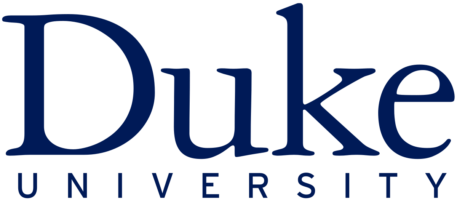Evangelizing for a Safer Internet
At the invitation of former Deputy Secretary of the U.S. Department of Treasury and former Governor of the Federal Reserve Board, Sarah Bloom Raskin, I spoke two weeks ago to a cybersecurity class that Governor Raskin is teaching at Duke University in Durham, North Carolina. The class is an unusual one: the students come from an array of disciplines (computer science, economics, public policy, and law), and is set up as a consulting firm with society as its client. And the problem the firm is set up to solve? The variety of cybersecurity ills that plague society, with a focus on innovative solutions that feature new approaches and that draw on diverse perspectives.
It was a great honor and privilege to be there. Although I grew up down the road in Chapel Hill and am an inveterate University of North Carolina fan, and therefore a fierce foe of Duke University, I happily shelved my sports allegiances for a rich two-hour discussion with Governor Raskin and her super switched-on class firm.
I focused on the following themes:
- This is a particularly extraordinary moment in time, as public frustration and anger over the poor state of security and privacy on the internet has reached an all-time high.
- Given the public’s appetite for change, there’s an opportunity to propose transformational solutions that could preserve the very best of the internet economy while helping extinguish the worst.
- One such solution is the CleanApps.org approach: addressing consumer privacy and security in a way that helps responsible businesses thrive while bringing a new measure of accountability to unethical businesses that leave consumers high and dry.
- Given the mandate of the students, I asked for feedback on our approach and requested their help and support in joining our movement for a safer internet.
As seems to be the case wherever the CleanApps.org mission is discussed, whether at Wharton, Duke, conferences, or at informal cocktail parties and dinner table conversation, nodding heads were the general reaction to the collective, self-regulatory, consumer protection approach that CleanAppsorg proposes to make the internet safer. And it’s no longer a surprise to me (though I admit to not knowing what to expect when I first started talking about our perspective).
How can anybody disagree with the notion of trying carefully thought out, new approaches to create a cleaner internet, particularly in these times of repeated privacy and security breaches? While it’s common for people to suggest government regulation or splitting up large tech companies, the alternative of relying on a collective approach to solving some of the internet’s most vexing problem – especially given that the internet was born of the collective – is compelling.
And how can anybody disagree with the idea of bringing the compliant companies together to commit to a cleaner internet, and help them rally behind standards that protect consumers while also fostering a prosperous internet business? Certainly the students at Duke seemed skeptical that government regulation – a country by country approach that could take eons to take root – could solve the global problem of internet security and privacy. Or that society should depend on any one company – like Facebook – to protect us all.
While I know that some app makers object to the Deceptor list that AppEsteem has introduced, the students seemed to embrace the Deceptor approach, as it offers clear accountability and an efficient way of protecting consumers from potentially dangerous apps. One student even pointed me to an entertainment website she felt was analogous: https://therottenappl.es/, which helps consumers identify movies or TV shows that feature cast or production people who have been accused of sexual misconduct.
Wherever you stand on the Deceptor program, though, nobody can disagree that we need more accountability for wrongdoers, and more rewards for those who respect consumer security or privacy. Without both, real change will almost certainly remain elusive. And change is what we need to make the internet safer. So to every app maker or member of CleanApps.org who wants a safer internet: get out there and spread the movement!
A big thank you to Governor Raskin, and to everybody I met at Duke. What a great opportunity it was to learn from such sharp and committed minds. And I look forward to finding creative ways for CleanApps.org to work with more students and academic institutions to create a safer internet!

